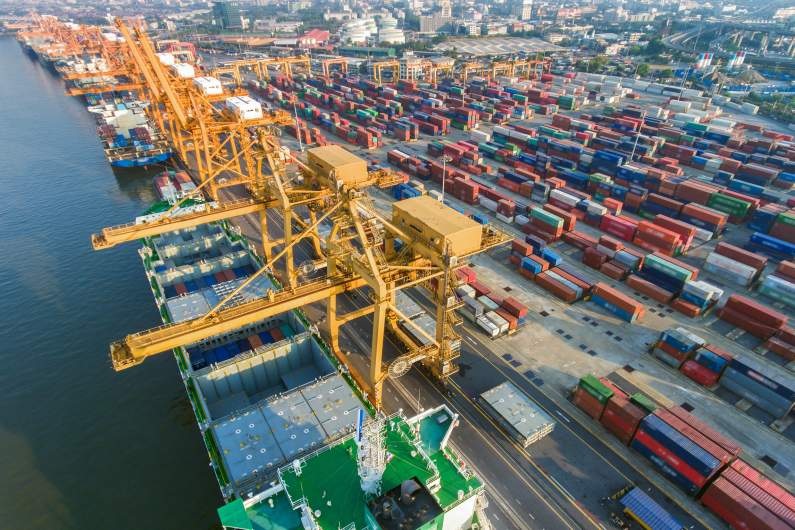Many enterprises or businesses must ship heavy machinery to or from overseas destinations. For example, if you own an agricultural supplies business or a construction company, heavy machinery shipping must be one of your priorities.
Thanks to technology, communicating with local and international shippers is now just a few clicks away. Furthermore, making payments and obtaining clearance is also easier than ever.
However, things can only become smooth if we know how to ensure the smooth shipping of heavy machinery overseas.
This post will highlight some crucial factors you must focus on to prepare a smooth and timely shipping procedure while protecting your heavy machinery.
Why is it a Daunting Task to Ship Heavy Machinery Overseas?
Most heavy machinery is expensive, so it would be imprudent to leave anything to chance when shipping it overseas. In addition, the shipping company you choose to handle your shipment must be highly experienced in shipping the same machinery.
Transporting heavy equipment means you need special equipment. So, before you delve into the possible transportation mediums for moving your machines by land or sea, make sure whatever you choose will protect your equipment.
In addition, handling paperwork such as certificates of origin, invoices, or other important documents is also a challenge.
That is why many businesses can rely on experienced shipping partners that can manage every detail of the process, from specialized transport and secure handling to documentation and compliance, and even Imports and exports, so that heavy machinery can arrive safely and on time.
What are the Issues You May Face When You Need to Ship Heavy Equipment?
Several issues may arise when shipping heavy equipment, especially when transporting bulk and large equipment.
Here are some common issues.
Weight and Size Restrictions
Heavy equipment should be within the weight and size limits of transportation regulations. In that case, you will need special arrangements and permits to guarantee compliance.
Costs
Due to its dimensions and weight, heavy shipping is not easy to transport. Hence, the cost of shipping such equipment is significantly higher and requires specialized handling requirements.
Preparation
There are numerous steps involved in preparing the equipment for shipping. For example, draining fluids, disconnecting connections, or securing loose parts may be a part of this process. Also, remember that shipping heavy machinery in an open container means the machines will be exposed to the weather.
Cover all vulnerable parts so they are not affected by the wind, snow, or rain. Failure to operate your equipment or machinery property can result in additional costs and delays.
Loading and Unloading
For effective loading/unloading, we need specialized equipment for heavy machinery. For instance, forklifts and cranes. The unavailability of these machines may mean logistical difficulties.
Choosing Appropriate Freight Service
Hire a freight forwarding service with solid expertise and prior experience handling heavy loads. If you choose inexperienced freight forwarders, they may delay shipment or damage the machinery, resulting in a considerable loss. Working with an established European logistics company streamlines cross‑border heavy machinery shipments and helps keep projects on time.
Permits and Route Planning
Shipping heavy machinery may require detailed route planning to avoid areas with load and height restrictions. Therefore, a crucial step of the process is to obtain the necessary permits from relevant authorities.
Insurance Coverage
Since heavy equipment shipments are of high value, they require specialized insurance coverage. Insurance protection can save you from any damages, loss, or liability.
Customs
Customs procedures, import/export laws, and border clearance can challenge overseas shipments. Therefore, it is essential to comply with customs requirements and documentation to avoid delays and fines.
Delivery Schedules
Shipping heavy equipment may require longer transit times than standard shipments due to logistical difficulties. Delays may result due to weather, distance, or the process of obtaining permits.
Environment Considerations
Transportation-related environmental regulations may be necessary for heavy machinery, such as hydraulic fluid or hazardous material machines. Hence, it is crucial to take appropriate containment and spill prevention measures.
Tracking and Communication
When delivering heavy equipment, keeping open lines of communication with the freight forwarding business and monitoring the shipment’s progress are essential. Regular updates can ensure a rapid transmission of information which also help identify any possible problems.
What Documents Do You Need?
You must provide the necessary documents according to the requirements for documentation and customs in your country. Your organization or business must submit various documents to guarantee compliance with customs regulations. Note that these requirements may vary depending on the nature of the machinery and the countries involved.
Generally, you may need:
Commercial Invoice:This type of document features all the details about the machinery, including its value and other data. The commercial invoice calculates import duties, taxes, and customs clearance.
Bill of Landing: A contract between the carrier and the shipper that is evidence of the transport agreement. This document features all details about the machinery, terms and conditions of transport and destination.
Packing List:Thislist features information about the shipment contents. It also includes other important details like the dimensions, weight, and types of machinery. The packing lists ensure accurate handling and inspection of the machinery.
Export License or Permit: You may need a permit or an export license to comply with trade regulations, according to the destination country and the type of machinery. You can receiveall documents from your local authorities.
Import License or Permit: The destination country’s importer should obtain these documents. But you may still have to submit supporting information.
Insurance Documents: Insurance documents, such as the cargo insurance policy or certificate, protect against loss or damage during shipping.
Certificate of Origin: The document confirms the source or origin of the machine, meaning the country where it was manufactured. It can impact taxes and import duties under preferential trade agreements or regulations.
Manuals and Technical Specifications:User manuals, technical specifications, or any relevant document can help customs officials understand the machinery’s functionality and ensure compliance.
Importer/Exporter Registration: The regulatory authorities in your country may require you to register as an importer or exporter. This registration will give you a unique identifying number required for shipping papers.
Documentation or Other Certificates: You may need documentation or additional certificates, such as hazardous materials certifications, inspection certificates, or compliance certificates for specific industry standards.
Consulting with professional freight forwarding companies can help you get access to up-to-date and accurate information.
What are the Additional Services You May Need?
Custom Clearance
Customs brokers may help with customs clearance procedures, guaranteeing compliance with import/export laws, arranging the necessary documentation, and paying and calculate import duties and taxes.
Insurance
It is important to ensure that your machinery is insured during transit. Cargo insurance provides coverage against loss, damage, or theft while the machinery is being shipped.
Disassembly and Loading
Specialized service providers and professional technicianscan assist with these procedures to ensure the packaging, proper machinery disassembly, and reassembly.
Rigging
Depending on the weight and size of the machinery, specialized rigging and equipment may be required for loading and unloading the cargo safely. Professional rigging services can offer the expertise and equipment required for efficient handling.
Crating
Generally, heavy machinery needs specialized packaging and crating to ensure its safe transport. Professional packaging services can build custom crates or containers that protect against damage during shipping and handling. Secure Crating and Shipping services are typically designed to handle such high-value, heavy-duty items. They can ensure that these items arrive intact, regardless of distance or transport conditions.
How to Prepare Your Equipment for Shipping?
Clean the machinery so no dirt or debris can harm the machinery. Inspect the machines for any issues or damage. Documenting machinery with videos/photographs is also a great idea. Check for any loose parts. Don’t forget to cover all vulnerable components. Secure any moving parts, like blades, levers, or arms, to prevent them from causing damage. Using fasteners, ties, or straps to immobilize these parts is common. Finally, label each packaged item with identification and equipment number, handling instructions, and destination address.
If you need clarification about the specific requirements for preparing your heavy machinery for shipping, consult with shipping agents, freight forwarders, or specialized service providers. They can offer customized solutions and recommend helpful ideas based on their experience and expertise.
How to avoid shipping inaccuracies when you need to ship heavy machinery overseas?
Here are some of the steps you can take to ensure successful heavy machinery shipping.
- Compliance with regulations is imperative for avoiding potential legal issues or inaccuracies.
- Partner with reputable freight forwarders, shipping companies, or logistics providers experienced in handling heavy machinery shipments.
- Provide complete documentation, including packing lists, invoices, and certificates, to guarantee smooth customs clearance.
- Ensure that the machinery is labeled correctly and packaged securely.
- Obtain appropriate insurance coverage for your machinery during transit.
- Maintain communication with your freight forwarding/shipping company to track the shipment.
Verify all shipment documentation, including packing lists and invoices. Ensure that all details correspond to the machinery shipped to reduce the possibility of errors during customs clearance.
Following these steps throughout the shipping process can minimize shipping inaccuracies when shipping heavy machinery overseas for a successful shipment.
Final Thoughts
If you are looking for affordable and professional shipping services, expert freight forwarders like Atlantic Project Cargo can help you. The company provides full-service and customized logistics to worldwide clients with a hassle-free process. While the company caters to all types of cargo shipping, they are expert in shipping and managing oversized equipment, such as industrial, construction, and agricultural machinery.





